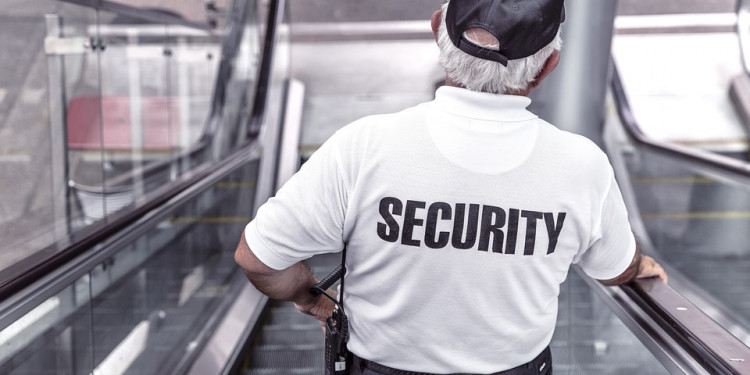Who doesn’t need to feel secure about their life and belongings? Whether it is the house or the workplace, that’s one of the first requirements. Security is so essential that since ancient history, men have fought wars for it. Even in this era, according to international relations theorists, we live in a world of the security dilemma. It means that one country beefs up their security by increasing its defense installations, which the other country then takes as a threat and does the same. This need for security then escalates the situation that leads to a war when both of them never wanted it in the first place. Physical security is not the only form of protection; we also have food security, which ensures that we don’t run out of things to feed ourselves. There is also the job security that everyone knows, but in today’s digital world, the word security gets a different meaning.
We live in a world where we have more information stored on our computers than we can imagine memorizing. Among other physical possessions, today’s information is equally a prized commodity, and anyone who has that is a winner. Anything precious can be stolen and used against you, right? So, we also focus on securing all the information we possess from getting into the wrong hands. Many businesses today rely on vast databases of information and would lose their business if something happened to those information lockers. On the other hand, apart from corporate espionage, hackers also want a piece of a pie and usually hack information to blackmail others into paying them. Companies employ Chief Information Security Officers (CISO) just for this purpose, and if you want to know how to become one, keep reading further.
TECHNICAL SKILL
Usually, in the top management, you need to have excellent leadership skills to lead others. The case of CISO is different as it requires knowledge of the information systems that one is protecting. So, if you ever wonder how to become a CISO, you can start by acquiring the technical expertise of information systems. You could obtain a bachelor’s degree in either information technology, cybersecurity, or computer science; any of these would work in giving you the required technical base. To gain leadership skills, people who apply to CISO jobs also acquire a management degree to complement their technical knowledge.
EXPERIENCE
Though you could be the most qualified person in the world, the experience is still invaluable. Many companies prefer the candidates having more practical knowledge of the job they are applying to; hence you should also work on attaining that. The experience will give you an edge over others in a very competitive job market. Since CISO is related to information security, you should work in an IT environment of professionals dealing with such things. The more, the merrier, and many sources state that up to 10 years of experience can do good in landing such a job quickly.
BUSINESS ACUMEN
CISO experts also need to have the mind for the business apart from the security. A scenario where the decision to lock networks reduces the productivity of the company would be quite detrimental to the business prospects. So, employers usually judge the applicants for their understanding of the business environment before hiring them as CISO.
COMMUNICATION SKILLS
Communication is a necessary social skill required for any job, and being a security officer is no exception to this universal rule. When the significant installations are under attack by hostile forces, quick communication stops small damage from becoming a catastrophe. Not only the information needs protection, but it also translates into the business interests of the company, which one cannot protect without effective communication. The board of directors of a company expects the CISO to communicate all the threats and whatever is required to repel them. They also need the security officers to impress those working under them the urgency to act in any situation, by setting a personal example.
RISK-TAKING
Security of any type is always a risky business, and any lapse could easily lead to heads rolling. Also, when we talk about personnel responsible for security taking risks, that sounds a bit counterintuitive. But calculated risk-takers are usually best security professionals because they know theirs and their enemy’s limits. The research concludes that responsible risk-taking depends a great deal on an organization’s security culture, and the CISO is directly accountable for it, as
CRISIS MANAGEMENT
Whenever there is a data breach, it is a crisis, and it usually requires a calm but focused person on dealing with such a scenario. A person who loses cool or reacts in a paranoid manner is likely to cause more damage in such situations. Security is such a business in which you need to have your head in the right place to react to conditions in a logical but effective manner. CISO experts should have the necessary crisis management skills to make them the perfect candidates for the job. The communication done during a crisis is quite different from regular communications. Keeping everyone informed about the quickly changing situation is the key, and CISO experts must possess this quality instead of getting absorbed by the crisis.
CONCLUSION
Security is a risky matter, and nobody likes taking any risks and needs the required protection. Previously, only physical security was of primary concern, and anything other than that was not so important. But today, owing to the massive information exchange, companies realize that any useful information getting into the wrong hands could cost them a fortune. Information handling and security requires dedicated experts who ensure that the data is always accessible to the authorized personnel. On the other hand, they also enable the information to be stored securely from hackers’ reach. If you want to become a CISO expert, follow the guidelines mentioned and develop the qualities that make you better than any other applicant for the job.



